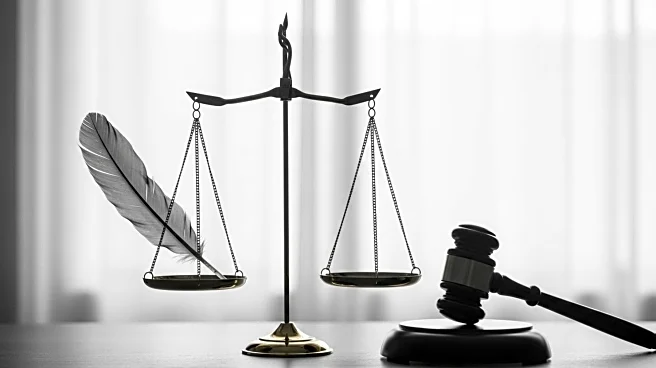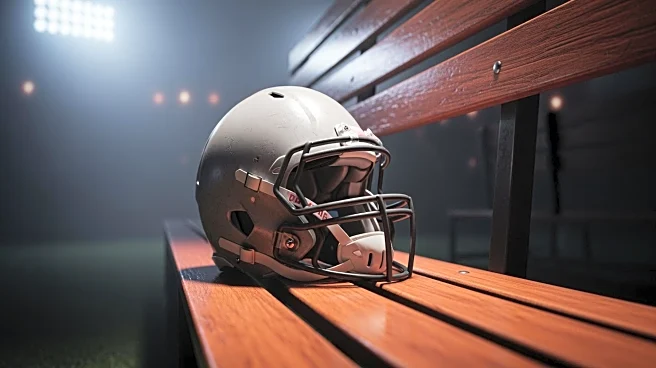What is the story about?
What's Happening?
Liam Óg Ó hAnnaidh, known as Mo Chara from the Irish rap group Kneecap, has been cleared of a terrorism charge by a London judge. The charge was related to an incident in November 2024 where Mo Chara allegedly displayed the Hezbollah flag during a concert. The defense argued that the charge was not filed within the statutory time limit, and the judge agreed, stating that the necessary consents from the Director of Public Prosecutions and Attorney General were missing. Mo Chara and Kneecap have been vocal about Palestinian rights and have criticized Israel, while also denouncing Hezbollah and Hamas. The group recently canceled a U.S. tour due to the court date and faced bans from Canada and Hungary over allegations of antisemitism and support for terrorism.
Why It's Important?
The dismissal of the charge against Mo Chara highlights the complexities surrounding freedom of expression and political activism, especially in the context of international relations and cultural advocacy. Kneecap's situation underscores the challenges artists face when their political statements intersect with legal frameworks. The bans from Canada and Hungary reflect broader geopolitical tensions and the sensitivity of antisemitism accusations. This case may influence how similar charges are approached in the future, potentially affecting artists and activists who engage in political discourse.
What's Next?
Kneecap's legal victory may embolden the group to continue their advocacy for Palestinian rights, potentially leading to further international scrutiny and diplomatic challenges. The bans from Canada and Hungary could impact their ability to perform internationally, prompting discussions on the balance between artistic freedom and national security concerns. Stakeholders such as human rights organizations and cultural advocates may rally in support of Kneecap, while governments may reassess their policies on political expression by foreign artists.
Beyond the Headlines
The case raises questions about the role of art in political activism and the limits of free speech. It highlights the potential for legal systems to be used as tools for political suppression, and the ethical implications of labeling political dissent as terrorism. The long-term impact on Kneecap's career and their ability to influence public opinion on contentious issues like the Israeli-Palestinian conflict remains to be seen.















